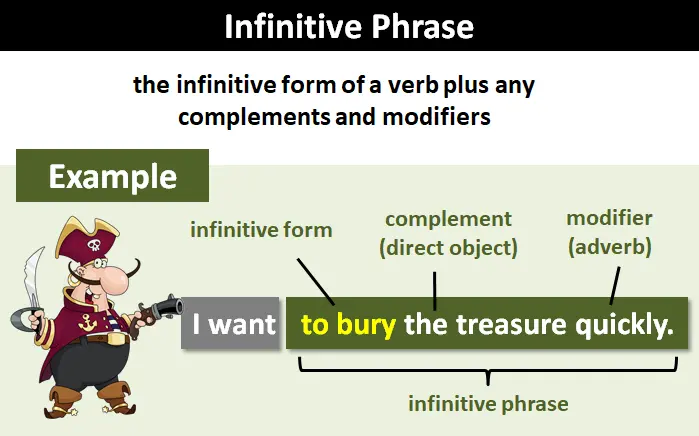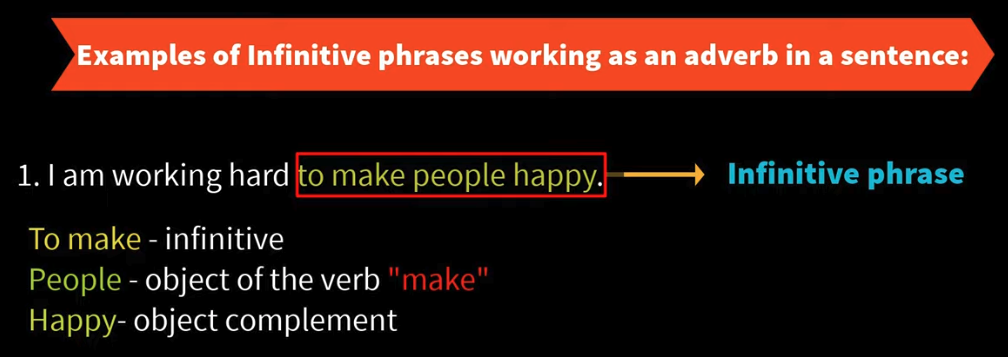ref – https://prowritingaid.com/infinitive-phrase

An infinitive phrase begins with the infinitive verb, usually with the word “to” in front. Here are a few examples of infinitive phrases:
Peter loved [to play guitar].
infinitive verb – to play
obj (noun) – guitar
the infinitive “to play” is paired with a direct object: “guitar.” Together, these make an infinitive phrase.
I told the kids [to dress quickly].
infinitive verb – to dress
adverb – quickly
An adverb (“quickly”) modifies the infinitive “to dress.”
Why do we use infinitive phrases? Infinitive phrases can add information or description to your sentences. They can strengthen your verbs and make your sentences clearer.
When an infinitive phrase functions as a noun, it can be a subject, an object, or a complement.
Here are some examples.
To win the tournament was our only goal.
Functions as subject:
infinitive verb – to win
complement – the tournament
To know genuine love is the greatest achievement in life.
Functions as subject:
infinitive verb – to know
modifier – genuine
complement – love
We want to buy an electric car.
Functions as direct object:
infinitive verb – to buy
modifier – an electric
complement – car
My only responsibility was to cook dinner every Sunday.
Functions as subject complement:
infinitive verb – to cook
complement – dinner
adverb – every Sunday
Infinitive phrases can also act as adjectives.
An adjective describes or modifies a noun. Let’s see what this looks like.
I’m bringing (verb) some candy (obj) to eat on the plane.
infinitive verb – to eat (describes candy)
noun – on the plane
Some days, I have the urge to quit my job.
infinitive verb – to quit (describes noun ‘urge’)
noun – my job
infinitive phrases can act like adverbs and modify a verb.
Usually, when an infinitive phrase is functioning as an adverb, it explains the why of the verb.
Here are some examples.
He bought flowers to apologize to his girlfriend.
infinitive verb – to apologize
modifiers – to his
complement – girlfriend
We went to the concert to see our favorite band.
infinitive verb – to see
modifiers – our favorite
complement – band
More Examples
as objects



as adjectives



as adverb



Infinitive phrases can have split infinitives.
Each of the infinitive phrase examples below features a split infinitive:
I need you to quickly respond to this email.
We need to greatly reduce our spending next month.
The presentation needs to succinctly explain our metrics and goals.
Split infinitives aren’t bad and they can make your infinitive phrases clearer. Try to avoid them in technical writing, but they are acceptable in less formal situations.
Do Infinitive Phrases Always Start with “To”?
Looking for “to” is an easy way to identify an infinitive phrase, but sometimes it’s not there! A bare infinitive is an infinitive without “to.” It appears after certain special verbs.